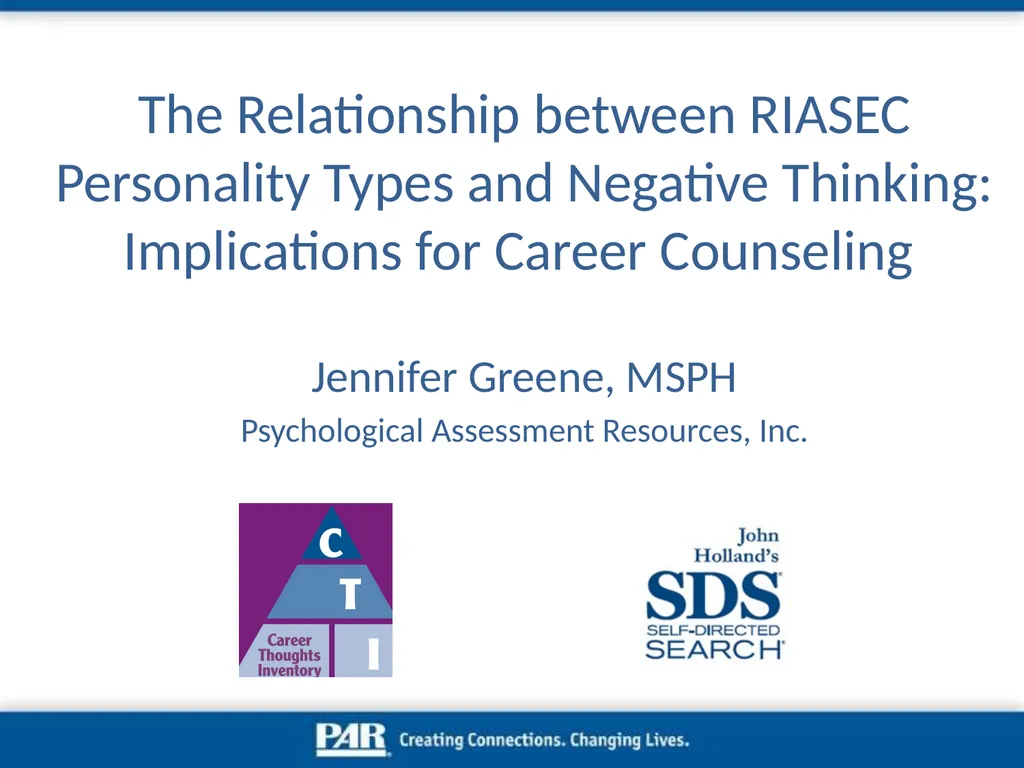
Author : danika-pritchard | Published Date : 2025-05-12
Description: The Relationship between RIASEC Personality Types and Negative Thinking: Implications for Career Counseling Jennifer Greene, MSPH Psychological Assessment Resources, Inc. My Background Masters of Science in Public Health Doctoral student:Download Presentation The PPT/PDF document "" is the property of its rightful owner. Permission is granted to download and print the materials on this website for personal, non-commercial use only, and to display it on your personal computer provided you do not modify the materials and that you retain all copyright notices contained in the materials. By downloading content from our website, you accept the terms of this agreement.
Here is the link to download the presentation.
"The Relationship between RIASEC Personality Types"The content belongs to its owner. You may download and print it for personal use, without modification, and keep all copyright notices. By downloading, you agree to these terms.













